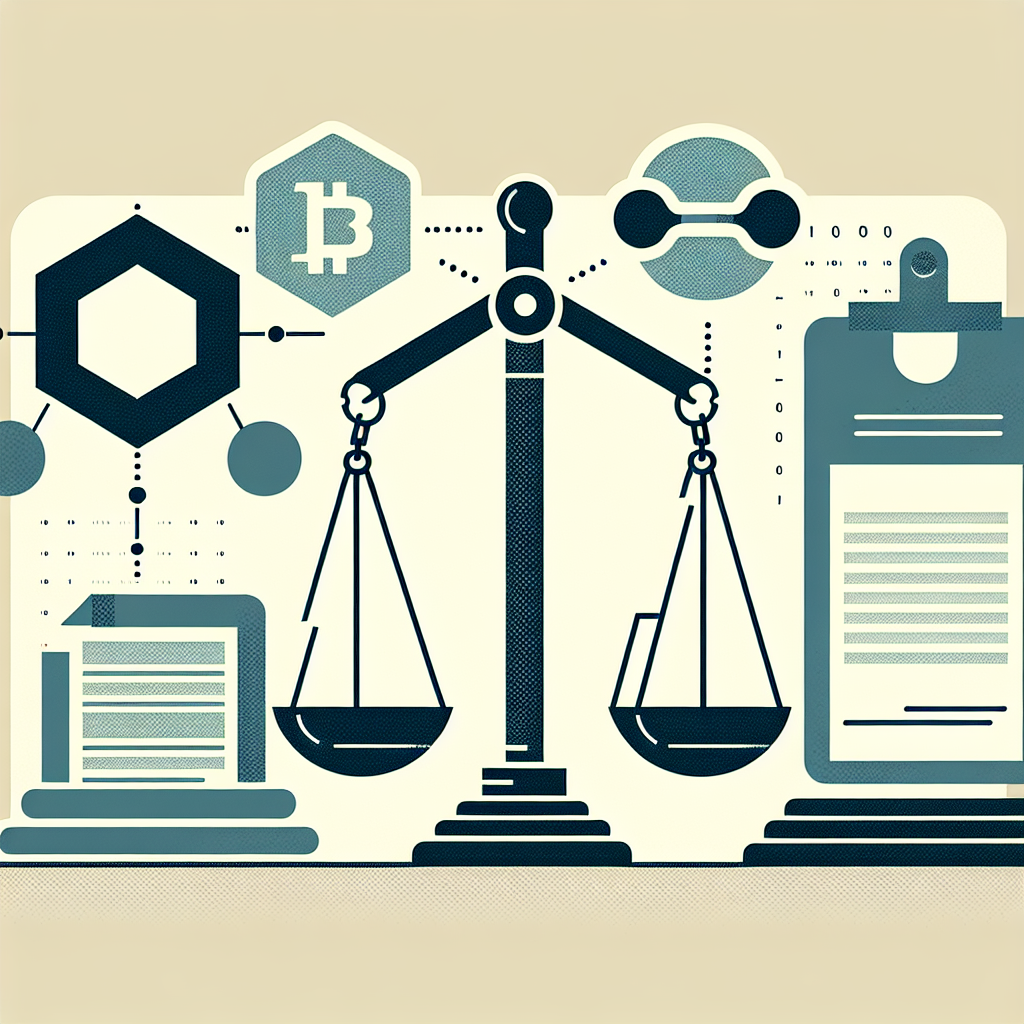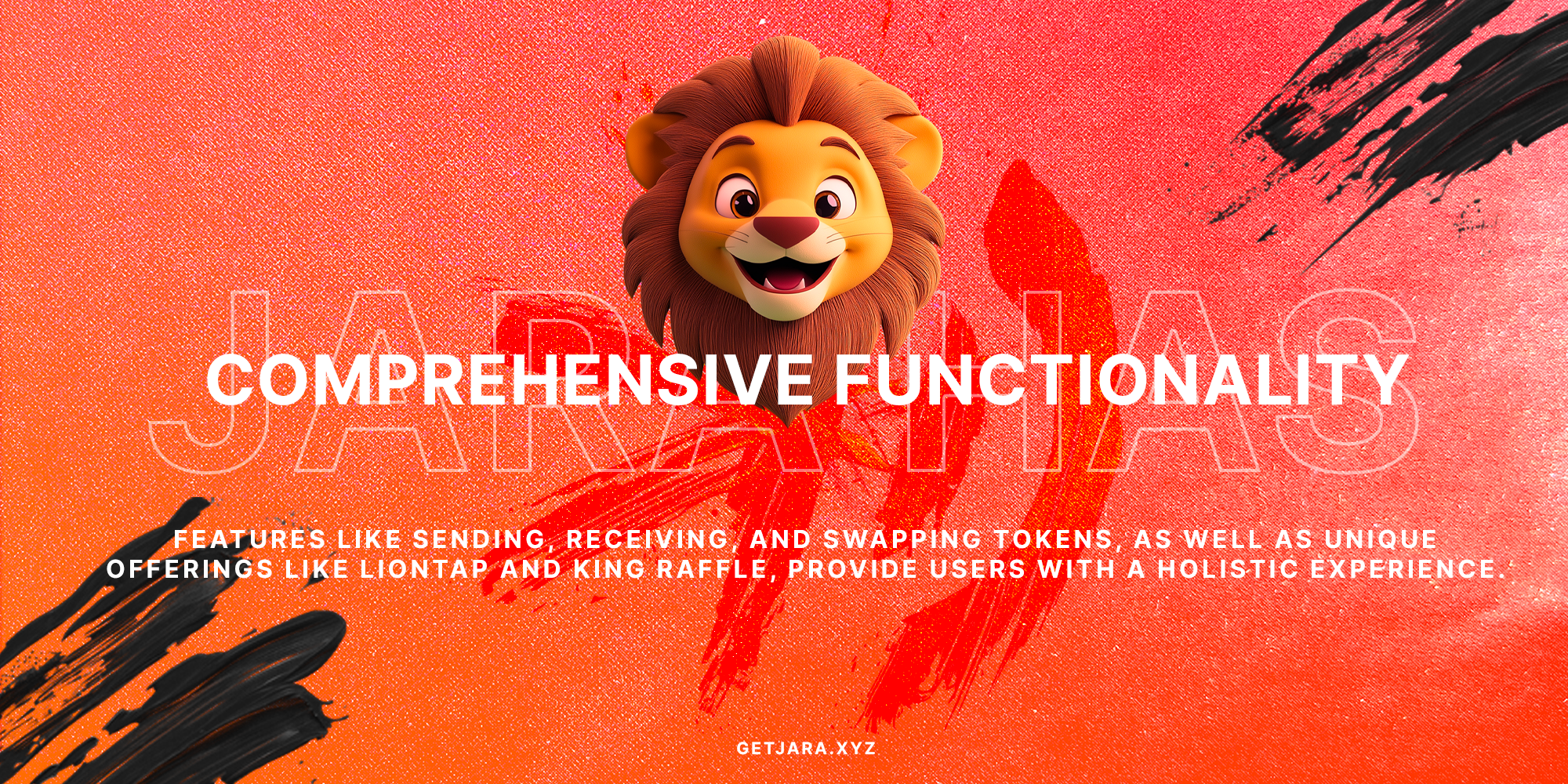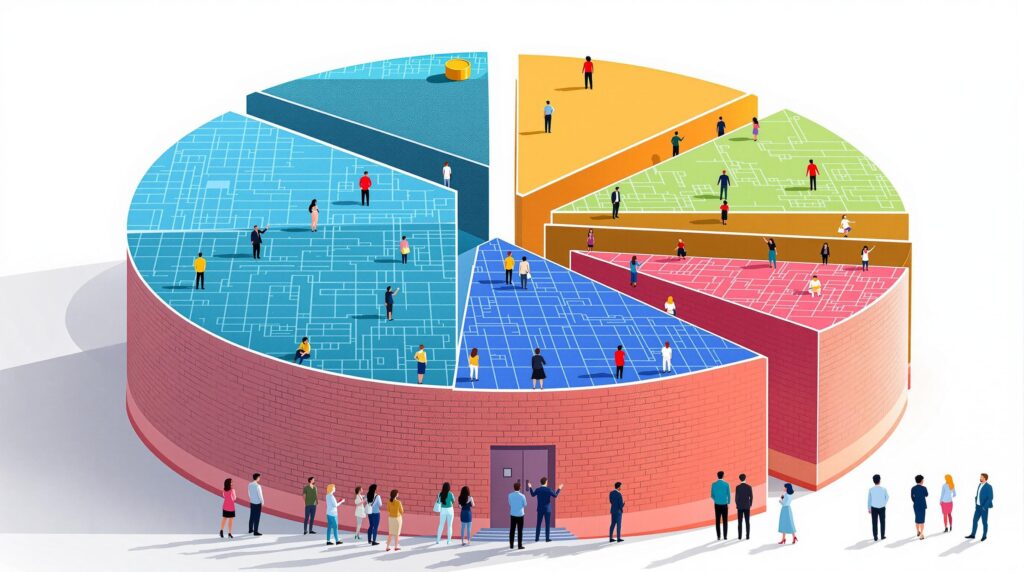Understanding Smart Contracts
Smart contracts are revolutionizing digital transactions by offering transparent, automated agreements without intermediaries. Embedded directly into a blockchain platform, these contracts automatically execute when predetermined conditions are met, ensuring security and efficiency in the execution of agreements. This innovative approach removes the need for a trusted third party, significantly reducing costs and time.
So, what exactly is a Smart Contract? A Smart Contract is a self-executing contract with the terms of the agreement embedded into computer code, which is then stored on a blockchain. This code automatically executes the terms of the contract when specific conditions are met, ensuring a trustless and transparent transaction.
Why are smart contracts innovative? They automate and secure transactions, effectively reducing the need for intermediaries, which cuts costs and time drastically.
Imagine a digital vending machine. You put a coin in, select your snack, and voilà – you have a candy bar. Similarly, smart contracts execute agreements without third-party involvement once conditions are fulfilled. This reliability is exactly why they are pivotal in industries seeking to streamline operations and enhance trust. But how do these contracts work in the real world, and more importantly, what makes them so dependable?
Features of Smart Contracts:
- Automation: Once the conditions coded within the smart contract are satisfied, the contract executes automatically without any need for human intervention.
- Security: Stored on the blockchain, these contracts are encrypted, ensuring data integrity. As a result, it is difficult for unauthorized individuals to alter the contract.
- Transparency: Every transaction and change is visible to all involved parties, reducing the opportunities for fraud or misinterpretation.
- Efficiency: By eliminating middlemen, smart contracts streamline transactions, which often makes processes faster and less costly.
In the context of Africa, the potential for African assets to benefit from smart contracts is immense. The continent is seeing a digital revolution that is unlocking a vast pool of untapped resources. Jara, for instance, is playing a crucial role in this transformation by offering a groundbreaking ecosystem, where the $JARA token powers crucial infrastructures like tokenized real-world assets such as the innovative $6 billion Lagos airport project.
Professor Nick Szabo, a pioneer of smart contract technology, explains that these contracts are essentially about embracing a digital future where automation reigns supreme, removing the need for traditional agreements and enabling profound economic efficiencies.
“Jara- Unlocking the Future to Africa’s Crypto Ecosystem.”
Smart contracts serve as the backbone of blockchain technology, providing the framework for a trustless, automated system that could revolutionize how contracts are executed in industries such as finance, real estate, and supply chain. The question many ask now is whether smart contracts can replace traditional legal frameworks, creating a future where automation is standard.
In Africa, Jara’s ecosystem, powered by blockchain technology, offers this visionary promise. As the continent embraces more technology-driven economic solutions, the integration of smart contracts presents unprecedented opportunities for growth and inclusion in the digital asset economy.
Throughout various industries, smart contracts are being recognized for their immense potential. Dive into our detailed exploration of top smart contract use cases in Africa to see how businesses and individuals are leveraging these powerful tools to facilitate operations and secure agreements.
How do smart contracts ensure trustless agreements? By embedding agreement conditions into blockchain code, smart contracts automatically enforce compliance, reducing reliance on trust between parties.
From reducing fraud in financial transactions to enhancing transparency in supply chains, smart contracts are paving the way for a future where trust is built into the system, not dependent on individual entities. If you are eager to learn more about this technological innovation and its applications in various sectors, explore our piece on the revolution of business automation through smart contracts.
The Automation Advantage: Efficiency through Blockchain
Have you ever wondered how businesses can operate seamlessly without intermediaries holding up processes? The answer lies in blockchain technology and smart contracts. These are self-executing contracts with the terms and conditions directly programmed into their code, allowing for autonomous operations once specific criteria are met. Imagine blockchain as an unyielding digital ledger, where each transaction is immutably recorded and unalterable without consensus from the network.
In Africa, a continent brimming with untapped potential, especially in the digital asset economy, the shift towards blockchain technology is paving the way for unprecedented improvements in efficiency and accuracy. This is where Jara comes into play, as a pioneering force in bridging global capital to African assets using smart contracts to automate processes, ensure trustless agreements, and eliminate intermediaries.
- Cost Reduction: Traditional systems often involve middlemen, increasing overheads. By leveraging blockchain, we can cut down these costs significantly, leading to more cost-effective transactions.
- Time Efficiency: How can delays in traditional contracts be averted? By automating routines and processes, smart contracts minimize time delays, enabling businesses to operate faster.
- Immutable Transactions: Blockchain ensures that each transaction is securely locked into place, making adjustments nearly impossible and ensuring the terms of the contract are executed as agreed.
- Decentralized Network: The power of decentralization means no single point of failure and ensures the system’s reliability and trustworthiness.
Smart contracts offer an transformative advantage in business automation by ensuring that all involved parties fulfill predetermined agreements by executing automatically when set conditions are met.
Enhanced Process Efficiency
What drives the shift towards blockchain for process efficiency? At its core, it’s the ability of smart contracts to execute transactions automatically without the need for vigilant monitoring or numerous manual checks. This not only speeds up procedures but also minimizes risks associated with human error, ensuring a flawless and efficient system. Traditional contracts often suffer from bottlenecks due to necessary human intervention and paperwork. Blockchain technology, however, offers a streamlined solution by executing automated functions.
The seamless execution and validation of smart contracts mean that fraud is minimized due to transparency and automation, critical attributes of blockchain technology.
Real-World Applications
Blockchain technology, elevated by the effectiveness of smart contracts, is being increasingly adopted across various industries in Africa. From finance to real estate, these contracts are becoming integral to modern business practices.
- Finance: Imagine instantly settling cross-border trades without the need for banks. Smart contracts in decentralized finance (DeFi) platforms remove the red tape, ensuring quick, cost-effective, and transparent transactions.
- Real Estate: With real estate tokenization, buying property in Africa becomes as straightforward as making an online purchase, thanks to the simplification of transactions and enhanced security via blockchain.
- Supply Chain: Ever puzzled about the journey of goods from production to shelves? Blockchains ensure every step is tracked, providing unparalleled visibility and security in the supply chain.
- Insurance: Claims processes often come with significant paperwork and delays. However, smart contracts automate the verification of claims, minimizing fraud and ensuring quicker settlements.
This unparalleled level of transparency and security is transforming how transactions are conducted. Automation through blockchain is not just about efficiency; it’s about creating a robust digital infrastructure for Africa’s growing economy. With the potential to surpass a $200 billion valuation, African digital assets present a compelling opportunity for global investors. Contact us through our website to learn more about how Jara can fuel Africa’s blockchain transformation.

Key Benefits over Traditional Contracts
In the rapidly evolving digital landscape, businesses are continuously seeking ways to enhance efficiency and reduce risks in their operations. This is where smart contracts come into play. But what exactly makes smart contracts so beneficial compared to traditional contracts? A smart contract is a digital agreement that automatically executes and enforces terms laid out in its code, eliminating the need for intermediaries. As a result, they are transforming traditional contractual agreements by incorporating advantages such as transparency, security, and cost efficiency, which enhance the reliability of the automated processes facilitated by blockchain technology.
Automation Reduces Human Error and Speeds Up Processes
Traditional contracts often involve labor-intensive processes, requiring multiple parties for drafting, verification, and enforcement, leaving room for human error and delays. Key Benefit: Smart contracts, by contrast, are self-executing and rest on blockchain’s decentralized nature, ensuring operations proceed without the manual intervention that traditional contracts demand. Imagine a world where the contractual obligations fulfill themselves as soon as specified conditions are met—this is exactly what smart contracts offer.
Enhanced Security and Trust
One of the most significant advantages of smart contracts over traditional contracts lies in their enhanced security. Traditional contracts, often stored in physical form, are prone to tampering, loss, or unauthorized alterations. In contrast, smart contracts are built on blockchain’s secure and decentralized network, making them significantly harder to tamper with. Key Benefit: Every transaction recorded on the blockchain is encrypted and linked to previous transactions, ensuring an unalterable and transparent record—ideal for industries in Africa striving for transparency and trust.
Smart contracts are reshaping global business by eliminating the need for paper trails and ensuring that transactions are automatically executed and verified, making the process faster, cheaper, and more secure than traditional methods.
Cost Efficiency and Resilience Against Fraud
Traditional contracts often involve significant administrative costs due to the need for intermediaries such as lawyers, brokers, or notaries, which can be a substantial financial burden. Key Benefit: Smart contracts reduce these costs substantially by automating the execution process and eliminating intermediary roles. The reduced human interaction also means a lower risk of fraud, as smart contracts execute precise, pre-set instructions without the possibility of human manipulation. Blockchain technology provides a trustless system where all transactions are visible to authorized parties, effectively reducing fraud.
Improved Compliance and Traceability
Smart contracts inherently improve compliance and traceability as business activities are automatically documented step by step on the blockchain ledger. Key Benefit: Automated execution ensures contracts only trigger when pre-defined conditions are fully met. This prevents any unauthorized or premature actions and maintains a clear, auditable trail of transactions, proving to be invaluable in resolving disputes efficiently. In Africa, where infrastructure development is booming, this transparency is crucial, as demonstrated in Jara’s projects like the Jara app’s role in the Lagos airport tokenization initiative.
“Invest in $JARA: Fuel Africa’s $200B+ Digital Asset Economy and partake in a revolutionary ecosystem driving transparency and efficiency in operations.”
Revolutionizing Industries in Africa
So, how are [smart contracts](https://leppardlaw.com/criminal-law/fraud/defense-of-crimes-involving-bitcoin-and-cryptocurrency/) transforming sectors like finance, supply chain, and real estate? In finance, they streamline processes such as settlement and clearance, reducing the need for third-party involvement and minimizing fraud. Meanwhile, the supply chain benefits from smart contracts through increased transparency, allowing every transaction to be traced with precision.
In real estate, smart contracts facilitate seamless transfers and tokenization of assets, which opens a world of opportunities within the Jara ecosystem. Not only do smart contracts make these processes more efficient, but they also democratize access to investment opportunities that were once limited to select groups. This is especially significant in Africa, where the need for investment in infrastructure and other sectors is growing rapidly.
Jara is transforming illiquid African assets into globally accessible digital opportunities, bridging the gap between international capital markets and local investment needs.
By understanding the distinctions between traditional and smart contracts, organizations can harness the full potential of blockchain technology, driving greater efficiency and trust in their automated agreements.
Industry Use Cases: Smart Contracts in Action
Have you ever wondered how smart contracts are reshaping various industries? Imagine a world where transactions are automated, efficient, and free from the risk of human errors. This isn’t just a future vision—it’s happening now, thanks to smart contracts on the blockchain. These smart contracts are revolutionizing processes by enabling trustless agreements, bringing in a new era of transparency and efficiency across industries, including finance, real estate, and supply chain management. But how exactly are these sectors leveraging this transformative technology?
Finance: Enhancing Transparency and Efficiency
In the financial sector, transparency and efficiency are paramount. That’s where smart contracts revolutionize business automation. By embedding the terms directly into code, they execute seamlessly when conditions are met, eliminating the need for intermediaries. This means banks and financial institutions can offer faster transaction processing and reduce costs associated with traditional intermediaries. The potential here is enormous, as manual processing often leads to costly delays and errors. In turn, this fosters an environment of trust and confidence among parties involved in the financial transaction.
What is a smart contract? A smart contract is a self-executing digital agreement in which the terms are written into code and operate on a blockchain.
Moreover, with the growing interest in [Africa’s digital asset ecosystem](https://example.com), platforms like Jara are notable players leading the charge. By offering a decentralized multi-chain wallet and tokenization of real-world assets, Jara is decidedly making waves in the digital asset market, providing transparent and efficient financial solutions for individuals and investors across Africa.
Real Estate: Simplifying Property Transactions
Traditionally, real estate transactions are notorious for being complex and time-consuming, with multiple layers of paperwork and intermediaries. Enter smart contracts, which simplify the real estate buying process by coding the terms of a sale directly into the blockchain. This ensures that once the parameters of the agreement are met, such as the verification of funds, the ownership transfer is automatically executed. Imagine selling a property without the hassle of endless paperwork or brokerage fees!
How do smart contracts simplify real estate transactions? Smart contracts use blockchain technology to automate the execution of contract terms, making transactions faster, more secure, and highly efficient by eliminating intermediaries and providing clear and tamper-proof agreements.
Jara’s ecosystems streamline these processes by offering tokenization solutions—investors can now benefit from tokenized real-world assets, enhancing liquidity in what were once illiquid assets across the African landscape. One such remarkable project is the tokenization of the Lagos airport, a project valued at $6 billion, offering previously inaccessible investment opportunities for both local and global investors.
Supply Chain: Improving Traceability and Reducing Errors
Have you ever thought about what happens to a product from the time it leaves a factory to when it reaches your hands? The supply chain is often complex and opaque, leading to inefficiencies and mistakes. Enter smart contracts—they offer a transparent, trustless environment where every stage of production and distribution is seamlessly tracked. This not only reduces errors but also enhances traceability, enabling companies to pinpoint the exact location and status of goods in real time.
What role do smart contracts play in supply chain management? Smart contracts on the blockchain enhance supply chain management by ensuring accuracy and transparency at each stage of the process, improving traceability and reducing human errors and fraud.
Smart contracts in supply chain transparency bring immense strategic advantages. For instance, they can automatically trigger payment upon arrival at a certain location, ensuring businesses maintain the integrity and accountability of transactions without the need for intermediaries. This leads to increased efficiency and reduced costs—an ideal scenario for businesses navigating the African market’s potential of over $200 billion.
“Jara Wallet: Powering Africa’s Digital Asset Ecosystem, One Smart Contract at a Time.”
Smart contracts are more than just a technical novelty in the supply chain sector; they are facilitating an unprecedented shift towards operational clarity and trust. As Africa undergoes a digital transformation, integrating such technologies can empower the local supply chain landscape, ensuring that each involved party can easily verify the data relevant to their transactions.
Insurance: Streamlining Claims and Reducing Fraud
Let’s be honest—insurance claims can often be a hassle, can’t they? The traditional insurance industry suffers from delayed processes and potential fraud, causing distress for all parties involved. Fortunately, the benefits of smart contracts for automation are highly relevant in the insurance sector. With pre-programmed conditions, claims can be processed automatically once all requirements are met. This legendary level of automation not only speeds up resolution but also significantly cuts down on fraudulent activities.
How do smart contracts prevent insurance fraud? By automating claims processing and using a transparent blockchain, smart contracts ensure that the terms are met before executing payment, reducing opportunities for fraud.
Jara capitalizes on the vast potential of smart contracts by integrating them into their platform, advancing secure, transparent, and efficient solutions for real-world scenarios, such as infrastructure projects. Future blockchain implementations like AI and smart contracts in Africa will further drive technological and economic progress.
Jara: Positioned for Africa’s Digital Revolution
From facilitating quicker, more secure real estate agreements to innovating the automation of smart contracts in supply chains or enhancing transparency in financial transactions, the potential applications are vast and promising. As Africa continues its digital journey, smart contracts powered by platforms like Jara will be a cornerstone in creating more efficient, trustless agreements. This means unlocking vast opportunities for both local and global investors looking to participate in Africa’s economic growth.

What are smart contracts in blockchain?
What are smart contracts in blockchain? Smart contracts are self-executing contracts with the terms of the agreement directly written into lines of code, functioning on blockchain technology to enable trustless transactions.
How do smart contracts enable trustless agreements?
Smart contracts on blockchain facilities facilitate trustless agreements by automatically executing terms without the need for an intermediary.
By deploying code on a decentralized network, smart contracts ensure that terms are transparent, tamper-proof, and cannot be altered by either party. This reduces the risk of human error and minimizes fraudulent activities, allowing parties to engage in trustless interactions. As the blockchain guarantees execution, disputes and ambiguities are significantly reduced, promoting a more automated and reliable business environment.
What industries are most affected by blockchain automation?
Blockchain technology, with its smart contracts, is transforming a variety of industries by enabling efficient and secure operations.
Industries largely impacted by blockchain automation include finance for streamlining payment processes, supply chain management for improving transparency, insurance for automating claims processing, healthcare for secure data sharing, and real estate for simplifying transactions. These applications show how blockchain and smart contracts are reshaping global industry practices.
Can smart contracts be used in African markets?
Yes, smart contracts are poised to significantly impact African markets. Jara is spearheading innovation, utilizing the $JARA token to drive digital transformation. By enabling tokenized infrastructure projects, such as the Lagos airport bond tokenization, Jara is creating accessible investment opportunities and fostering economic growth across the continent.
What are the legal considerations for using smart contracts?
The legal considerations for using smart contracts involve understanding jurisdictional differences, as laws regarding blockchain contracts can vary widely across regions.
It is crucial for users to consult with legal experts to ensure compliance with local laws and avoid potential legal complications. The enforceability of a smart contract may depend on how its terms align with existing legal standards. Failing to adhere to these guidelines could expose parties to unforeseen legal risks.

Related Practice Areas
Explore other areas of our expertise that align with the role of smart contracts in automation and trustless agreements.
Discover What Our Clients Are Saying
At the forefront of our Smart Contracts & Automation practice is a deep-seated commitment to client satisfaction. Each case is handled with utmost care, as echoed in the appreciative feedback from those we represent.

Connect with the Leading Experts in Smart Contracts
Unlock the full potential of automation with smart contracts and discover how blockchain can seamlessly enable trustless agreements. At Jara, we specialize in integrating these cutting-edge technologies to empower your business solutions.
“Your business deserves the security and efficiency that smart contracts can provide. Let us help you navigate this revolutionary technology.”
Our experienced team is here to guide you through the intricacies of blockchain technology, ensuring your transactions are secure and efficient.
“Your Voice, Our Mission” – we champion your rights with the tenacity and dedication that has earned us the trust of our community members.
Understanding Smart Contracts: A New Era of Automation
In the realm of blockchain technology, smart contracts are transforming the way agreements are executed and enforced. But what exactly makes these digital contracts “smart”?
What Are Smart Contracts?
Smart contracts are self-executing contracts with the terms of the agreement directly written into lines of code. They reside on a blockchain, ensuring transparency and immutability.
“By eliminating the need for a middleman, smart contracts offer trustless solutions for various industries.”
Key Benefits of Smart Contracts
- Automation: Once the predefined conditions are met, smart contracts execute automatically, reducing the need for manual intervention.
- Transparency: All parties involved have access to the terms and execution details, promoting trust and reducing disputes.
- Cost Efficiency: By removing intermediaries, smart contracts save costs associated with traditional contract execution and management.
Real-World Applications
Smart contracts are gaining traction across multiple industries, including:
- Finance: Facilitating secure and efficient transactions without traditional banking infrastructure.
- Supply Chain: Streamlining processes by ensuring timely deliveries and payments.
- Real Estate: Simplifying property transactions by automating the transfer of ownership.
The Future of Automation with Smart Contracts
As the technology evolves, smart contracts hold the potential to redefine how agreements are perceived and executed globally, fostering a more automated and efficient world.
“With smart contracts, the possibilities are endless – from automating processes to ensuring complete transparency.”

















